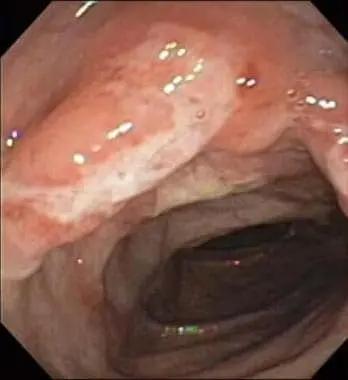Crohn’s disease is a chronic inflammatory bowel disorder that can profoundly impact an individual’s quality of life. This lifelong condition primarily affects the digestive tract, causing inflammation and irritation in various sections, including the small and large intestines. While the exact causes of Crohn’s disease remain unknown, researchers have uncovered strong evidence suggesting a hereditary component. This article will look into the genetic factors that contribute to the development of this debilitating condition, shedding light on its inheritance patterns, risk factors, and the connection between genes and environmental influences.
Prevalence and epidemiology
Crohn’s disease is a global health concern, affecting millions of people worldwide. According to estimates, approximately 6 to 8 million people globally are living with this condition. The disease is particularly prevalent in developed countries, urban areas, and northern climates, suggesting a potential link between environmental factors and disease susceptibility.
Genetics
Numerous studies have consistently shown that Crohn’s disease tends to run in families, strongly suggesting a significant genetic component. Around 15% of individuals diagnosed with Crohn’s disease have a first-degree relative, such as a parent, sibling, or child, who also suffers from the condition. This clustering of cases within family members provides strong evidence for the role of inherited genetic factors in disease development.
Genetic variations and risk
Extensive research has identified over 200 genetic variations that influence an individual’s risk of developing Crohn’s disease. These variations, or mutations, are primarily found in genes involved in immune system function, such as NOD2, ATG16L1, IL23R, and IRGM. These genes play crucial roles in processes like autophagy, which is the body’s mechanism for detecting and eliminating harmful bacteria and viruses.
Changes in these genes can disrupt the normal functioning of the immune system, leading to an inappropriate inflammatory response against harmless bacteria present in the digestive tract. This chronic inflammation can result in the characteristic symptoms and complications associated with Crohn’s disease.
Inheritance patterns
While the inheritance pattern of Crohn’s disease is complex and not fully understood, it is clear that the condition does not follow a simple Mendelian inheritance pattern. Instead, it is thought to be a multifactorial disorder, influenced by the interplay of multiple genetic and environmental factors.
Researchers have observed that the risk of developing Crohn’s disease is significantly higher when both parents are affected by inflammatory bowel diseases (IBDs). Additionally, certain ethnic groups, such as those of Eastern European and Ashkenazi Jewish descent, exhibit a higher prevalence of the condition, further supporting the role of genetic factors.
Environmental influences
Although genetics play a significant role in Crohn’s disease development, environmental factors also contribute to the overall risk. Lifestyle choices, such as smoking, have been linked to an increased likelihood of developing the condition and more severe disease progression. Additionally, factors related to industrialisation, sanitation, and diet have been proposed as potential contributors, although the exact mechanisms are not fully understood.
Pathogenesis and immune system dysfunction
The development of Crohn’s disease is thought to involve a complex connection between genetic factors and environmental triggers. In individuals with a genetic predisposition to the condition, exposure to certain environmental factors may start an abnormal immune response.
Normally, the immune system recognises and eliminates harmful pathogens while tolerating the body’s cells and harmless bacteria present in the gut. However, in individuals with Crohn’s disease, the immune system mistakenly identifies these harmless bacteria as foreign invaders, starting an inappropriate inflammatory response.
This chronic inflammation leads to the characteristic symptoms of Crohn’s disease, such as abdominal pain, cramping, diarrhoea, rectal bleeding, and weight loss. Over time, the persistent inflammation can cause complications like intestinal ulceration, fistulas, and strictures, further exacerbating the condition.
Genetic testing and counselling
With the increasing understanding of the genetic factors involved in Crohn’s disease, genetic testing and counselling have become valuable tools for individuals at risk. Genetic testing can identify specific genetic variations associated with the condition, allowing healthcare providers to assess an individual’s risk and provide personalised management strategies.
Genetic counselling plays a crucial role in educating individuals and families about the implications of genetic test results, discussing the potential risks and benefits, and providing guidance on reproductive decisions and family planning.
Treatment options
While there is currently no cure for Crohn’s disease, various treatment approaches aim to manage symptoms, induce remission, and prevent complications. These strategies often involve a combination of medications, dietary modifications, and, in some cases, surgical interventions.
Medications used in the treatment of Crohn’s disease include anti-inflammatory drugs, immunomodulators, and biologic therapies. These medications target the underlying inflammatory processes and help regulate the immune system’s response.
Dietary modifications to reduce flare-ups such as avoiding trigger foods and adopting a nutrient-rich diet, can also play a significant role in managing symptoms and promoting overall health.
In severe cases or when complications arise, surgical interventions may be necessary to remove affected portions of the intestine or address issues like fistulas or strictures.
Ongoing research
Despite significant progress in understanding the genetic underpinnings of Crohn’s disease, ongoing research efforts continue to unravel the complexities of this condition. Researchers are exploring the intricate interactions between genes, environmental factors, and the gut microbiome, aiming to develop more targeted and personalised treatment strategies.
Additionally, advanced genetic technologies, such as whole-genome sequencing and gene editing techniques, holds promise for identifying therapeutic targets and developing treatments tailored to an individual’s unique genetic profile.
Living with Crohn’s Disease
For individuals living with Crohn’s disease, understanding the role of genetics can provide valuable insights and support in managing the condition. Maintaining open communication with healthcare providers, adhering to prescribed treatment plans, and adopting a healthy lifestyle can significantly improve overall well-being and quality of life.
Support groups and patient advocacy organisations can also offer invaluable resources, guidance, and a sense of community for those navigating the challenges of living with Crohn’s disease.
Conclusion
Crohn’s disease is a complex condition with a strong genetic component. While the inheritance patterns and specific genetic variations involved are still being researched, it is clear that a combination of genetics and environmental factors contribute to the development and progression of the disease.
Sources
- Causes of Crohn’s Disease – Crohn’s & Colitis Foundation
- Crohn’s disease: MedlinePlus Genetics
- Crohn’s Disease: What It Is, Symptoms, Causes & Treatment
Medical Disclaimer
NowPatient has taken all reasonable steps to ensure that all material is factually accurate, complete, and current. However, the knowledge and experience of a qualified healthcare professional should always be sought after instead of using the information on this page. Before taking any drug, you should always speak to your doctor or another qualified healthcare provider.
The information provided here about medications is subject to change and is not meant to include all uses, precautions, warnings, directions, drug interactions, allergic reactions, or negative effects. The absence of warnings or other information for a particular medication does not imply that the medication or medication combination is appropriate for all patients or for all possible purposes.









